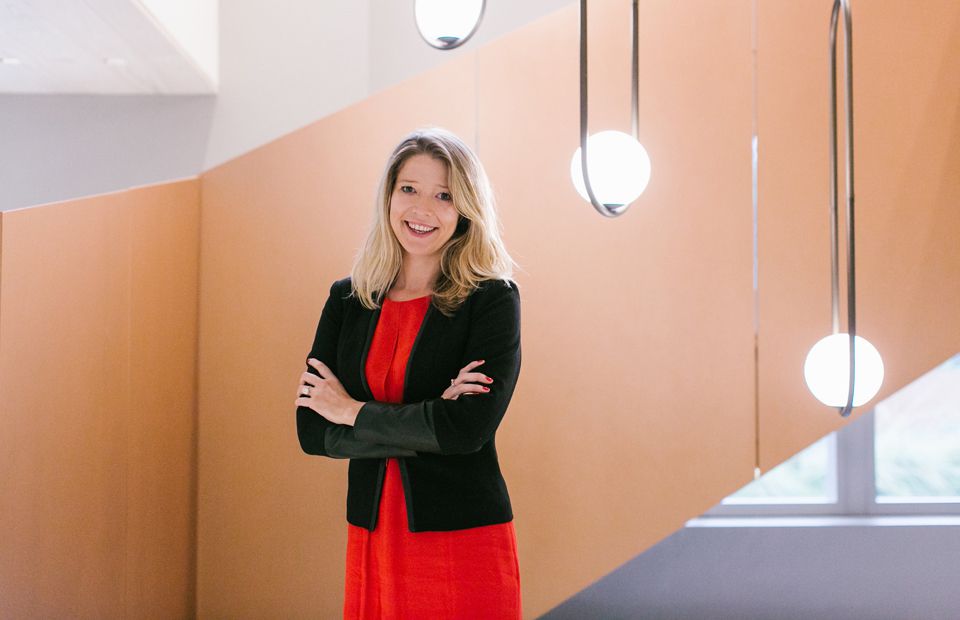Like many career stories, Nicole Quinn's path to partner at Lightspeed, an early stage venture capital firm, isn't exactly linear—and that's probably exactly why she excels at her work as a VC. After completing her bachelor’s in mathematics at York University in England and her MBA at Stanford University, Quinn began her career at Morgan Stanley where she worked for almost a decade. But on the side, she found herself drawn to angel investing, in part because it was an opportunity to put her energy into the projects (and the people) she believed in.
Turns out Quinn has an eye for transcendent entrepreneurs, a skill that she uses today at Lightspeed. While this may be the first time you've heard Quinn's name, you do know the genre-disrupting companies she's behind. Consider Girlboss, which Quinn decided to invest in after standing with Sophia Amoruso in her kitchen drinking tea for hours. Quinn's seeking—and funding—companies she hopes will change the way we do business, making the relationship between companies and consumers more human. And so far, she's got a killer track record. Here's how it all started:
[At Morgan Stanley, I was] doing equity research and sales, and I was actually covering e-commerce companies like ASOS. Then I moved to New York—and it was exciting times in New York—and that was when we did the Facebook IPO and the Groupon IPO. So I really enjoyed that career.
But I found, at Morgan Stanley, I was getting in at 5 am every day—so getting up at 4 to get to the desk at 5—so I could write these reports before [everyone else got in]. After finishing work at 6 pm, I then had to take clients out until 10 or 11 o’clock at night. I was exhausted. I was running on empty. And sometimes, you don’t have time to get tired, because you’re like, “Ok just go, go, go, go, go," so you don’t get tired until you actually stop. But when you stop for a second, you’re like, “Wow, wait a second. That’s not right. I shouldn’t be feeling this tired.”
I had been doing some angel investing for about five years. And that, really, was what made me think very seriously about venture capital because I loved angel investing and I thought, “How can I do this full-time? How can I make this into a career?” And so that’s how the whole thing started.
On Her Beginnings With Angel Investing
It started with friends of mine, who I thought were exceptional, who were starting great companies, and I thought—I want to (a) invest in them and (b) help them. I introduced them to a ton of people I know and helped them with hiring and strategy. Instead of speaking in headphones all day, I was speaking to founders who were creating growth, creating jobs, and making a real difference in people’s lives through the companies they were creating.
I wanted to help founders in a more meaningful way, and actually be on the other side of the table, working for myself. So I went to a fintech [financial technology] startup called Nutmeg, which is online private wealth management. I moved back to England to do that. When I came back over to The States, I met some people who were developing a wearable tech company, and I started helping them do their seed rounds. I pitched to Lightspeed and they said, “Wait a second, you are exactly what we want in the consumer space. Would you be interested in coming for an interview here?”
On Transitioning to Lightspeed Venture Partners
It's a lot about people, right? It was pretty much one specific person, Jeremy Liew [who brought me to Lightspeed]. I started to have quite a few meetings with him, interviews, and I just thought he was exceptional. His mind thinks in a very different way than most people, and he has this incredible ability to cut through the noise, get right to the point, answer tough questions...it challenges your own thoughts and makes you grow.
To be honest, he kind of makes me a better person, being around him. So I came out of every meeting with him inspired and thought, “I would love to work with someone like that." And that was it.
On What It Means to Be A Venture Capitalist
We do early-stage venture capital (VC), which is also known as angel investing. So, somebody starts a company, and usually at the point when they have an idea, you’ll get “angels” (which are typically high net-worth individuals or families of high net-worth individuals) that will invest in the early angel stage company. Seed stage VCs come in after that, and then VCs like Lightspeed come in and say, “You’re series A, series B round," and that means that they will be investing anything from $1 million to $20 million in your company in exchange for a certain percentage of ownership of the company.
Different investors have different styles—but we’re a very active investor and want to be more than just capital. We want to be your thought partner, your hiring partner, your strategy partner, even your there-for-you-in-your-tough-times partner.
So, some people see VC differently, but I see the VC as a partner. They’re there to support you and encourage you, even when times are tough. They’re also there as periphery vision to tell you what things are going on around you and about people you might want to think about hiring, but they're also reminding you that you’re the one driving the ship, so you make the final decisions.
On the Intuition Behind Choosing Companies
Faith is such a big part. Later on, when you’re looking at a Series B or a Series C deal, there are a lot of numbers, but when you’re looking at a seed, or Series A company, it’s all about your gut. It’s all about, you know, how great the person is, how great the initial product is, and you don’t have the numbers to back it up. So you’ve just got to think about it based on your own gut reaction.
On How To Make A Great Pitch
Maximize the “wow” moment, but minimize the “drop” moment.
What I mean by that is, when you’re listening to a pitch, you want to hear something that inside, makes you say, “Wow." And those might be things like, “We just launched three months ago, and we’re already doing $1 million in revenue a month." That’s amazing if a company says that. Or, “These are my experiences, the things I’ve done in my past, these are my advisors, these are the people I’ve been able to convince to come aboard and help, and they are the best advisors you could possibly get." Those elements are so important.
Then, minimize the “drop” moment. Don't tell me at the end of the entire presentation, “And, our margins are like...2%.” I’ll be like, “Oh, everything was so good until then!” It’s disappointing. So, maximize the “wow," minimize the “drop”.
Her Advice To Women Founders
It’s interesting, a big difference I see [between women and men when they pitch] is that women tend to be more conservative on their projections and their assumptions, as well as their forward-looking model. They’ll say, “Okay, this is what we think we’re going do in six months...maybe we’ll do it in a year, but we don’t want to promise anything that we can’t deliver—so we’ll be conservative on that front.” But there was once this male VP who came in [to meet with me] who gave me his "100-Year Plan,” and I was like, "Wow! You're not telling me what you're hoping to do in six months, you’re telling me where you’re going to be in 100 years!" Whenever I speak with female founders, my advice is always, “Think big and take risks.”
...And to Women Interested in Angel Investing or Venture Capitalism
Play to your strengths, whatever those are. So if you have a computer science degree at a great university, and you feel like VCs don’t have anybody like you and your network, then talk about that. If you have worked for a really fast-growing company, like Lyft or Uber, and lots of your friends are leaving to start companies, you need to say, “Hey, I have a really strong network from XYZ companies, and I can bring that to the table. You don’t have that without me.” It depends on the person, but leveraging your experience, your network, your affinity groups, I think that’s important.
Walk us through your typical day.
Things are always very fluid and moving in VC. So you have what you think your week will look like, and then things, quite often, will change. Yesterday, I had to change my day a little bit and just jump on a plane to go down to LA. I did a few of the conference calls that I had planned, but I did them from the car while driving down to the airport.
In LA, I met a founder. She’s incredible, so I spent like two hours talking to her. I think it’s a company that we’ll end up investing in—so that was exciting. I ended up like chatting with her, then checking in on other companies and seeing whether they wanted me to pop in and see them while I was in LA.
Then I did multiple conference calls on the way back to the airport, came back here, and headed straight into a meeting—three meetings and three conference calls, actually. Then I hosted a dinner party, so I had 14 fintech founders come over to my house, and we all discussed different fintech trends—things that are working on the marketing side, things that are not. That was really great to be able to do that.
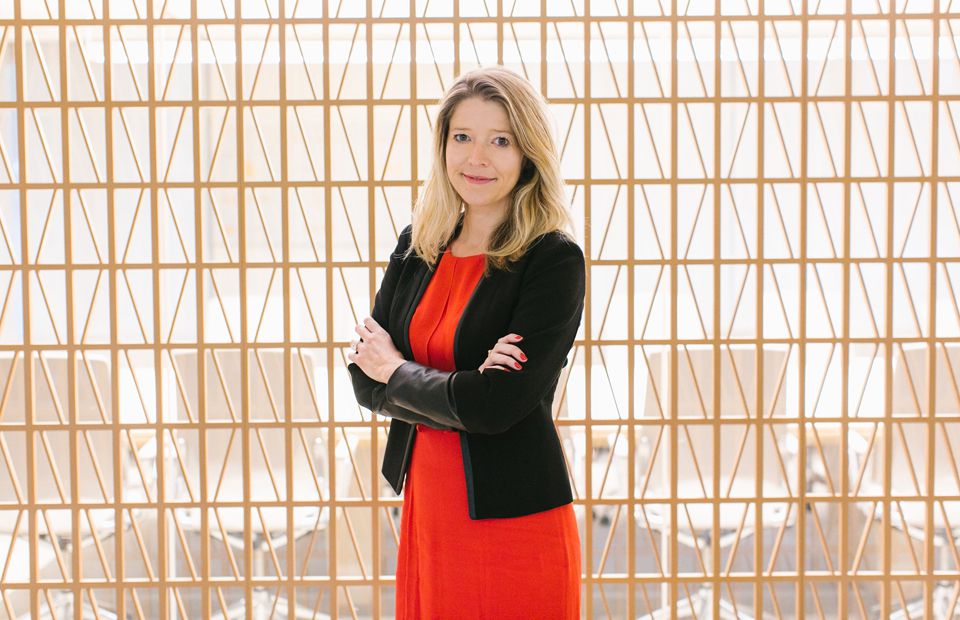
Favorite travel tip?
Be super organized. Know exactly where you’re going and what you’re doing. All those little things are important.
Best place you've lived/worked?
I would say San Francisco, but I like variety. My four favorite cities in the world are New York, LA, San Francisco, and London. I love to move around. I also love to explore new places like Chicago and other cool cities—I get super excited about it.
Companies you're excited about right now?
Glossier are doing an incredible job in the beauty industry. Rothy’s, which we’ve invested in. They have plastic recycled shoes, and they’re so good for the environment. They look great, they’re so comfy, and you can throw them in the washing machine. They’re awesome.
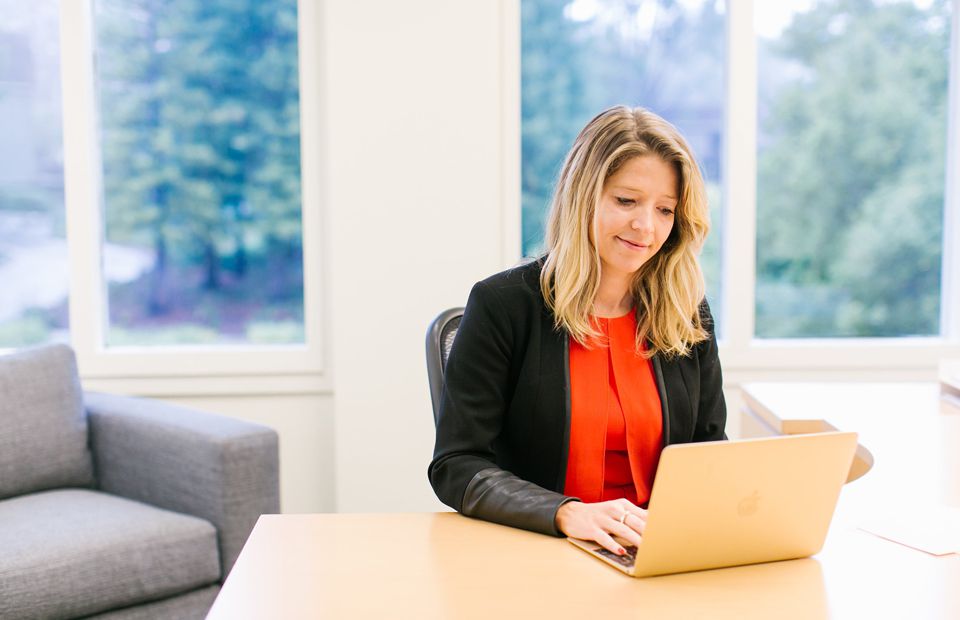
What is one thing that you would want to do for a living if you weren’t a VC?
If I weren’t to do anything in investing at all, I would love to do something like journalism. I would want to be an anchorwoman for a cool news show—that would be awesome.
Best interview question you’ve been asked when applying for a position?
People always ask about your strengths, but I like when people ask about your weaknesses as well.
Do you ever fully turn off with your work?
Never, and that’s why my boyfriend is very good at making me meditate in the morning, making sure I sleep enough, and that I work out a couple times a week. He's always like, “We have to do a 10-minute meditation," and that’s so good because that’s the only time—those 10 minutes—when I’m not thinking about work. That's important to me.
You May Also Like
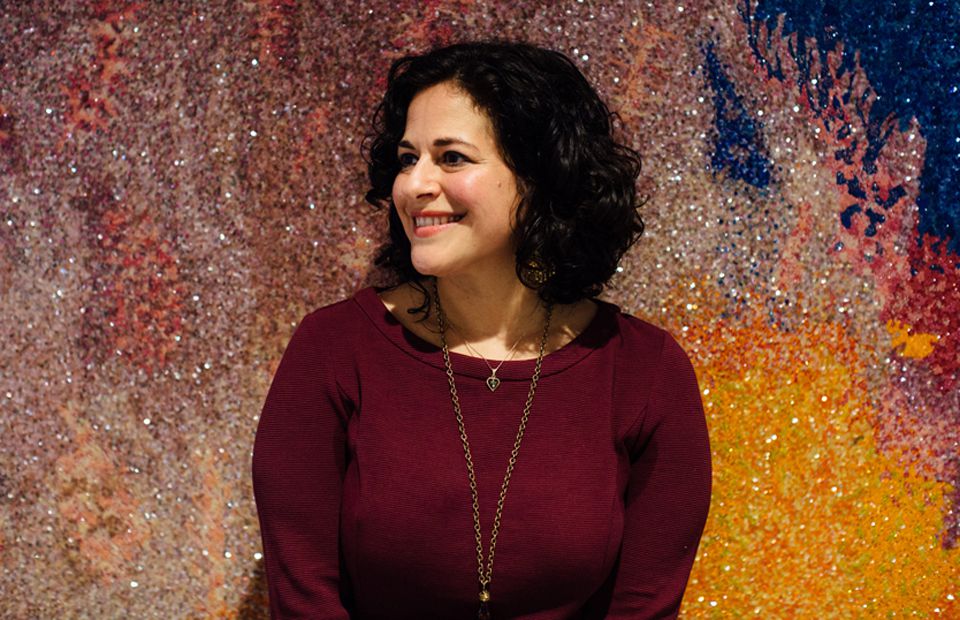
Consumer Goods
Our New Dream Job? Vice President of Social Consciousness & Innovation
"The truth is, having a more responsible supply chain or more responsible business is made up of lots of small actions. And one thing that I really love about my work is that nothing is black and white. It's all gray space."
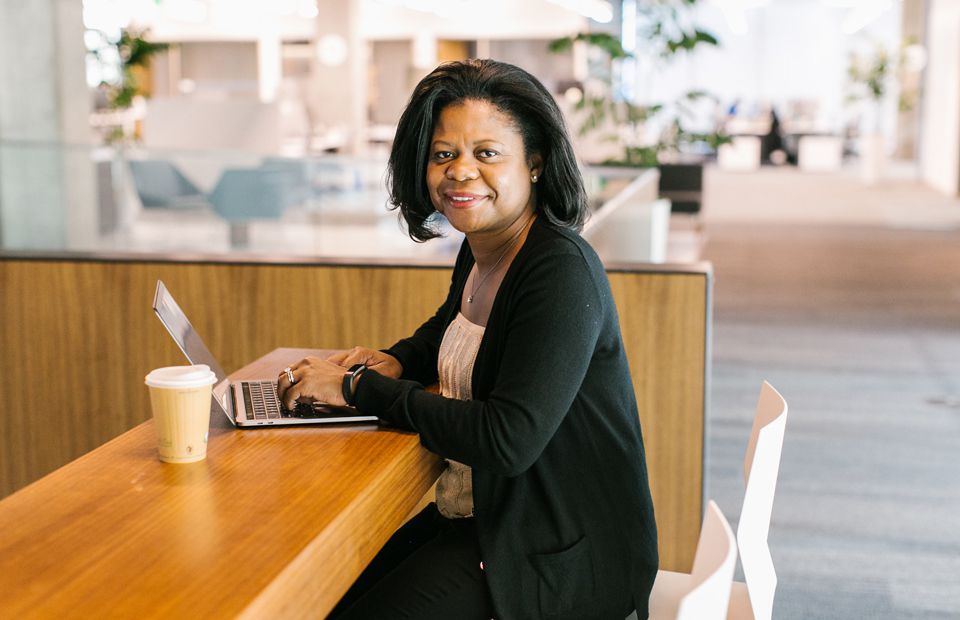
Consumer Services
An Executive at Intuit on How to 'Send the Elevator Back Down'
"What I often tell engineers—especially women engineers—is that it’s good to be excellent, but you’ve got to make sure it’s not a well-guarded secret."
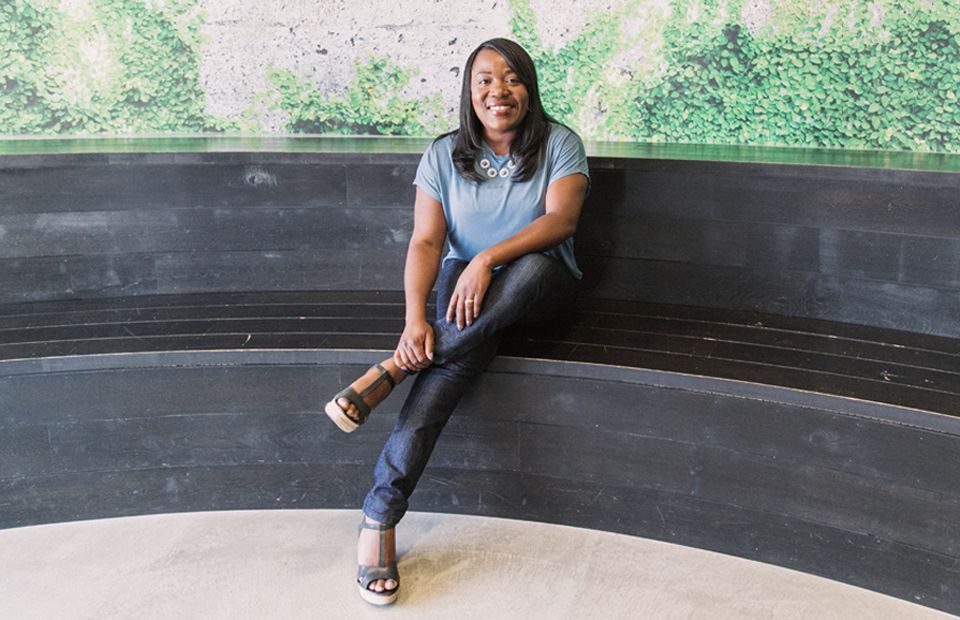
Consumer Services, Technology
A Top Lawyer Talks Leadership, Transparency, and a Music Empire's Goals for Diversity
As Chief Counsel at Pandora, Adelmise Warner has a few thoughts on leaning in.

Consumer Goods
Rising Tide Society's Founder on Why Not Everyone's Cut Out for Entrepreneurship
Natalie Franke on creative entrepreneurship and her journey with Rising Tide Society
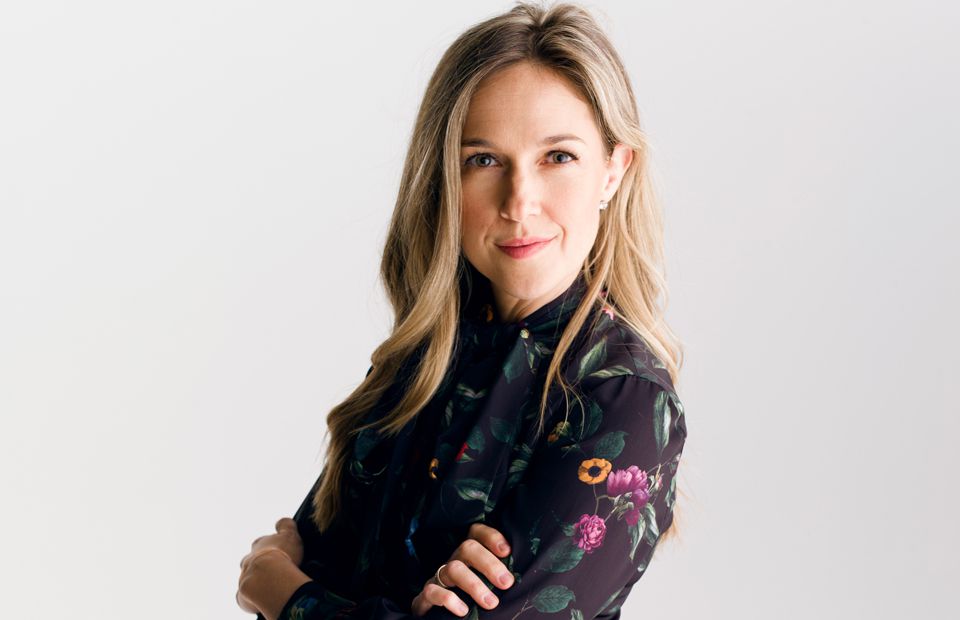
Consumer Services, Technology
Here's How a Female V.P. at a Tech Startup Faces the Gender Gap
Nikki Pechet on writing your own maternity leave policy and taking a job for joy, not money.
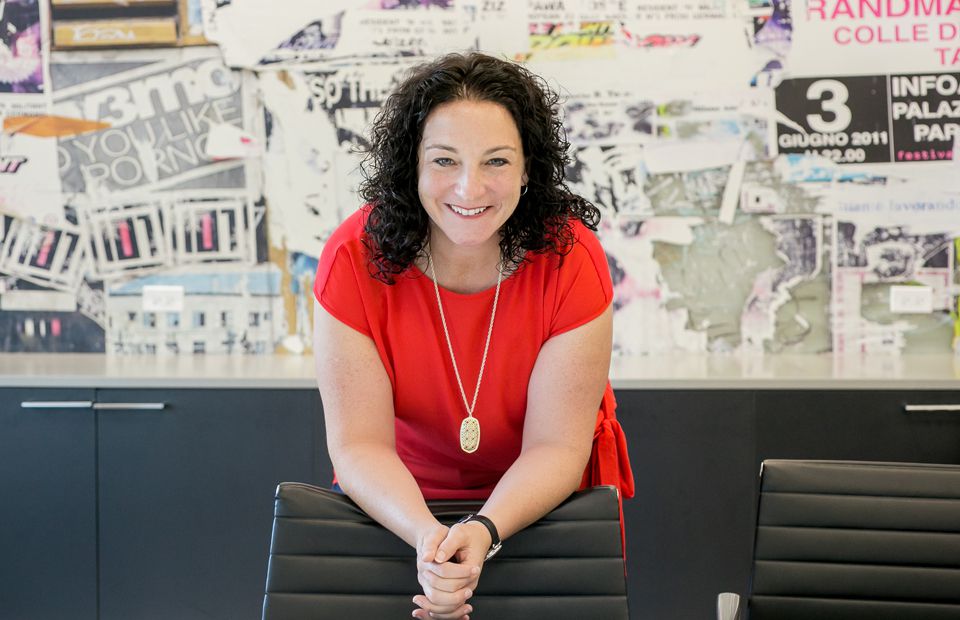
Consumer Goods, Technology
A Sales V.P. on What It's Like to Work at Pandora
Casey Forbes is living an audiophile's dream career.
Get the Best Career Advice Delivered To Your Inbox
Join our newsletter to stay in the loop.
